The Cambridge entrepreneurial ecosystem
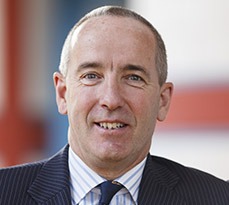
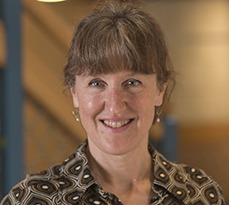
“You couldn’t pick a better place than Cambridge,” says Cecile Gani, Employer Engagement, Technology and Entrepreneurship Lead at Cambridge Judge Business School.
“You can become an entrepreneur by immersion here. Surrounded by entrepreneurs, you end up speaking their language – as well as finding out what keeps them awake at night!”
Peter Hiscocks, Fellow in Entrepreneurship and Innovation Management, has watched the city of Cambridge evolve into the largest entrepreneurial system in Europe. “Until the 1970s, the university was known for producing great ideas, but there was little commercialisation.
“In the last 40 years the number of high-tech companies in Cambridge has grown from just 20 to 5,200. The first unicorn, or billion-dollar company, -opened here in 1967; today there are 16.”
With more than 20 business and research parks as well as innovation centres based in the city, alongside five major venture capital firms and a number of accelerators and incubators, budding entrepreneurs taking the Cambridge MBA have a wide range of opportunities.
Accelerating your startup idea
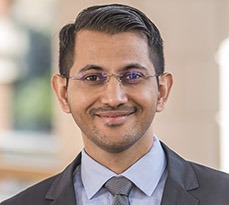
“It is up to you to take what’s on offer,” says Suyash Bhatt (MBA 2019). “I had worked in the family business in food and beverage manufacturing in India and my MBA application was all about entrepreneurship, I was very sure about pursuing that route from day one. But the idea for my business that I had at the beginning of the MBA programme is very different from what we are trying to implement now.”
Suyash is now founder and CEO of Foodbud, a machine-learning based food recommendation platform that provides its users personalised food recommendations based on their food allergies. He credits the Cambridge Judge network and wider Cambridge ecosystem with helping him start his company.
“I went to all the accelerators, attended all the events around entrepreneurship, which really helped me in the network. And the people I met have helped me in evolving the platform.
“Definitely the people you meet during your MBA programme will add value to your entrepreneurial idea. Everything related to my business, whether it is the first investor, the first customer, or even my first mentor, I found them by building my Cambridge network, whether it was inside the MBA programme or outside it.”
Prioritising your time across the MBA year
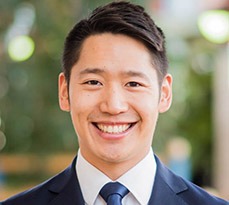
Jason Yip (MBA 2018) had worked in a large corporate environment and a small startup before starting his MBA. “When I came to Cambridge, I knew I wanted to be involved in entrepreneurship, but I didn’t know whether that was starting my own company or joining another startup.”
Jason committed early in his MBA year, “I didn’t do any job applications. My clarity of vision that I wanted to do entrepreneurship allowed me to prioritise my time.” That included making sure he networked in the wider Cambridge community, where he met some students completing a post-doc in cancer research. Together they spun the research out into a tech bio startup working in the field of precision oncology.
Trained as a chemical engineer, as CEO of Tailor Bio Jonathan is now working in the very different field of genomics and molecular biology. “I had zero background before I met my co-founders. I brought the drive and the commercial skills to put together the startup and get it done. I was introduced to an area and an industry that I wasn’t familiar with, and I am very grateful for that opportunity.”
Taking your special interest beyond the MBA
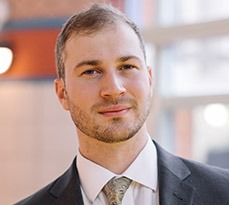
Jonathan McBride (MBA 2020) was Chair of the CJBS Entrepreneurship Special Interest Group during his MBA year and is now co-founder and CEO of Fotostax, which is developing a device that lets you capture and print moving and 3D images in instant print format. Accepted into the Accelerate Cambridge programme, the company recently won the Santander Accelerate Project Award and was designated one of the most disruptive MBA startups of 2021 by Poets and Quants.
“If you have a business idea when you come to CJBS, great, you can validate it. But don’t worry if not. Cambridge is a great place to meet smart people who might not always have the skills to commercialise their product or service. You don’t need any prior experience (running a company) before starting your MBA. You will be surrounded by other individuals who will increase your knowledge tenfold.”
Jonathan’s classmate Gbeminiyi Onabanjo (MBA 2020) came to study for his MBA on the back of six years as Managing Director of Mitera Health in Nigeria. “I was already an entrepreneur, but philosophically I was struggling.
“To be introduced to a wider network and being able to speak to people from a business or tech background, who had actually been out there doing stuff, was very helpful in honing my business and inter-personal skills. And I was able to forge the necessary networks that would be beneficial to my business.”
Choosing the right courses during your MBA
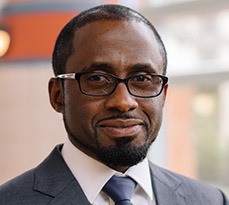
Jonathan was a consultant at Octopus Ventures for his MBA Global Consulting Project, where he created and delivered a market map for crypto, while Gbeminiyi worked with the World Health Organisation. As he explains, “I was very clear cut on my path from the outset and had the opportunity to choose projects that were aligned with my own business.”
One important decision was to take the Entrepreneurship Concentration, which as Cecile Gani points out is taught by lecturers such as Peter Hiscocks, entrepreneurs themselves. Peter’s own company Podpoint had a successful £350 million initial public offering (IPO) on the main London market last year, making him well placed to advise the likes of Jonathan McBride, currently deep in the ‘nitty gritty’ of fundraising.
The core course in Management Praxis can also be critical to founders, says Gani, while the Cambridge Venture Project, where students work in teams of 5 for 2 months, at a local startup, provides essential hands-on experience.
But in the end, it’s all about you, Cecile says, “Your personal brand is very important, especially for early founders. When you don’t have a product yet, the product is yourself.”
The aim at Cambridge Judge is to provide the knowledge, the support, and the network, to help you put your best self forward.


